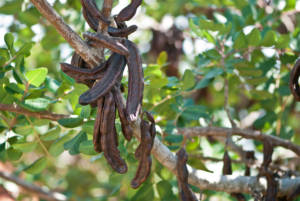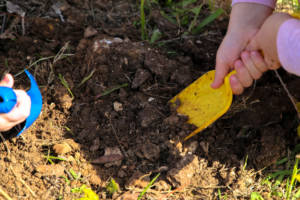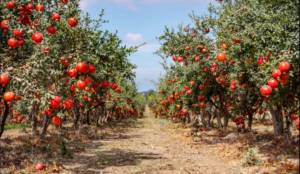On Tu B’Shvat we appreciate the experience of planting trees or eating the fruit of trees that will bear fruit leading to a better future.
Four months ago, a friend gave my wife a small sapling kumquat tree as a birthday present. We replanted it into a bigger pot, and every few days after watering it I would check to see if it grew.
I didn’t see progress, so I figured I’d wait another few days. (My wife does not just wait; she talks to the plants and gets more results than I do!) Four months later, we are still waiting.
The first lesson to be drawn from this experience is that trees do not grow a lot in the winter. However, the bigger lesson is that trees teach us about patience and investing in the future. For a people that has lasted 3300 years, patience and long-term vision are essential aspects of Jewish consciousness. The holiday of Tu B’Shvat, the New Year for trees, is upon us, and one of the central themes to be learned from this holiday is the principle of patience. In order to fully understand this concept, I need you to be patient and allow me to share a fascinating story from the Talmud about resolution and investing in the future.
The Key to Jewish Continuity
One of the most unique figures in the Talmud is Choni Hamagel, Choni the Circle Maker (Babylonian Talmud Taanit 23a). His name might sound like that of a native American Chief, but really, he was one of the sages of the Talmud. So how did he get his name? In times of drought, he would draw a circle on the ground and declare to the Almighty that he would not leave the circle until the rain came. And sure enough, the rain would come.
One day Choni was walking along and saw a man planting a carob tree. Choni asked the man why he was planting if there was a good chance that he would not see the tree bear fruit, which only comes after 70 years. The man’s answer is the key to the secret of Jewish continuity: Just as he found a world full of carob trees in his life because his ancestors planted for him, so too he decided to plant for his descendants.

Ripe carob tree (Shutterstock)
It seems that hearing this message was not enough, Choni needed to experience it. Choni ate a meal and fell asleep and slept for 70 years! When he awoke, he saw a man gathering carobs from the tree and asked if he had planted the tree. The man answered no, I am the son of the man who planted. It was then that Choni realized he had slept for 70 years.
He returned home only to find out that his son had passed away and only his grandson was still alive. In the study hall, he heard scholars lamenting that they no longer had Choni to answer their questions. When he told them that he was indeed Choni, they did not believe him. Choni was so upset he prayed for mercy and died. The Talmud then concludes this tale with the quote “either friendship or death,” meaning that without his peers, Choni felt his life was not worth living.
What is this puzzling and tragic Rip Van Winkle-like story meant to teach us? The lessons from this story share themes with holiday of Tu B’Shvat. Choni’s story teaches that we plant trees for the long term, and that with a tree, like in life, the fruits often only come after many years. The fruit of our story, the carob, is an example of a fruit which takes a lifetime to bear fruit, and we have the custom to eat it on Tu B’Shvat.

Children digging in the ground with a shovel in Israel, planting trees on Tu b’Shvat. (Shutterstock)
Children take decades to raise, careers are built over a lifetime, and Jewish life is built across lifetimes, centuries and even millennia. Jewish continuity is an enterprise for which others have laid the foundation, and our role is to continue to build that foundation for those who will come after us. The idea of acting for the future generations is also very relevant to the preservation of our planet, which has become a dire issue. We must think about how the way in which we use the planet will affect future generations. This is why Tu B’Shvat has become the ‘Jewish Earth Day.’
The timing of Tu B’Shvat serves as a message similar to the lesson learned by Choni. Tu B’Shvat marks the beginning of the New Year for trees, so one might think the holiday would fall out just before the new crop of fruit. But instead, it falls out in the tail end of winter in Israel. The cold, rain and darkness of winter are not over in mid-February, not even in Israel. Yet the Talmud tells us, and science corroborates, that the sap begins to rise and nurture the tree six weeks before the beginning of spring. We learn that even though we might not outwardly see how our efforts are impacting the world, the seeds planted will eventually blossom and a brighter future bearing fruit will emerge.

Ripe pomegranate trees (Shutterstock)
Our family made Aliyah immediately after the 70th anniversary of the State of Israel, and when we look out our window and see the Judean forests, we know they are there because the previous generations of Zionists had the vision to understand the significance of planting for the future. For us, moving to Israel was so important because we wanted to plant roots for our family in our homeland. We hope that we will be able to contribute to the physical and spiritual building of the land. which will lay the foundation for the next stage of our personal, family and national destiny.






















